Do you pronounce the consonant at the end of a word in French?
Consonants in French are very often ignored when they’re on the ends of words. Here are some tips for helping you navigate the world of final consonants.
What are vowels and consonants?
Letters can be split up into two categories: vowels and consonants. Vowels are the letters a, e, i, o and u. All the other letters are consonants (b, c, d, f, g, h, j, k…)
Silent consonants
If you’ve been learning French with 3 Minute French, you’ll have come across a few words in the first course that aren’t pronounced how you might expect. The following words, for instance, all end with letters that are completely silent:
- délicieux (delicious)
- parfait (perfect)
- toujours (always)
- tout (everything)
- mauvais (bad)
- restaurant (restaurant)
- mais (but)
Non-silent consonants
However, there are then some other words in French that end in consonants that you do pronounce! Take these, for example, the consonants at the end are clearly pronounced:
- sac (bag)
- docteur (doctor)
- œuf (egg)
- vol (flight)
- parc (park)
- plaisir (pleasure)
- neuf (nine)
- appel (call)
So, how do you know when to pronounce a consonant on the end of a word or not? Well, the word careful can help us out. The only consonants you ever pronounce on the end of a word in French are c, f, r and l. These are the only consonants you can find in the word CaReFuL. Any other consonant is not pronounced. If a word ends in a C, R, F or L, you can pronounce the last letter, but if it ends in any other consonant, you can’t pronounce it.

Let's practise
How do you think you would pronounce these words in French?
- donc (therefore)
- alors (so)
- nord (north)
- nous (we)
- éléphant (elephant)
- soif (thirst)
- avril (April)
- finir (to finish)
ANSWERS
- “donk”
- “ah-LOOR”
- “noor”
- “noo”
- “eh-leh-FON(g)”
- “swaff”
- “ah-VRILL”
- “fee-NEER”
ER ending
There is an exception to the CaReFuL consonant rule, and that’s when you have a verb that ends in “er”. When you have a verb that ends in the letters “er”, you pronounce the “er” like an “ay”. This means you don’t hear the R sound on these words.
- parler (to speak) — pronounced “par-lay”
- aller (to go) — pronounced “ah-lay”
- manger (to eat) — pronounced "mon(g)-jshay”
- arriver (to arrive) — pronounced "ah-ree-vay”
- jouer (to play) — pronounced "jshoo-ay”
Liaison
Now, there is a time when you can ignore the CaReFuL consonant rule, and that is when the next word starts with a vowel. When a word ends in a consonant, and the next word starts with either a vowel or the letter h, you can pronounce the consonant. This is called liaison.
So, with these five examples, you can either choose to keep the consonant silent, or you can pronounce it, since the next word starts with a vowel or a h.
je suis allé (I went)
“jsheugh swee ah-LAY” or “jsheugh swee zah-LAY”
il est heureux (he is happy)
“eel eh eugh-REUGH” or “eel eh teugh-REUGH”
c’est ici (it’s here)
“seh ee-SEE” or “seh tee-SEE”
assez utile (quite useful)
“ah-SAY oo-TEEL” or “ah-SAY zoo-TEEL”
tu vas aller (you’re going to go)
“too vah ah-LAY” or “too vah zah-LAY”
In context
It’s always good to look at rules in context, because it helps to solidify them in your mind. So, let’s read through a few lines from Le Petit Prince (The Little Prince), and focus on any words that end in a consonant.
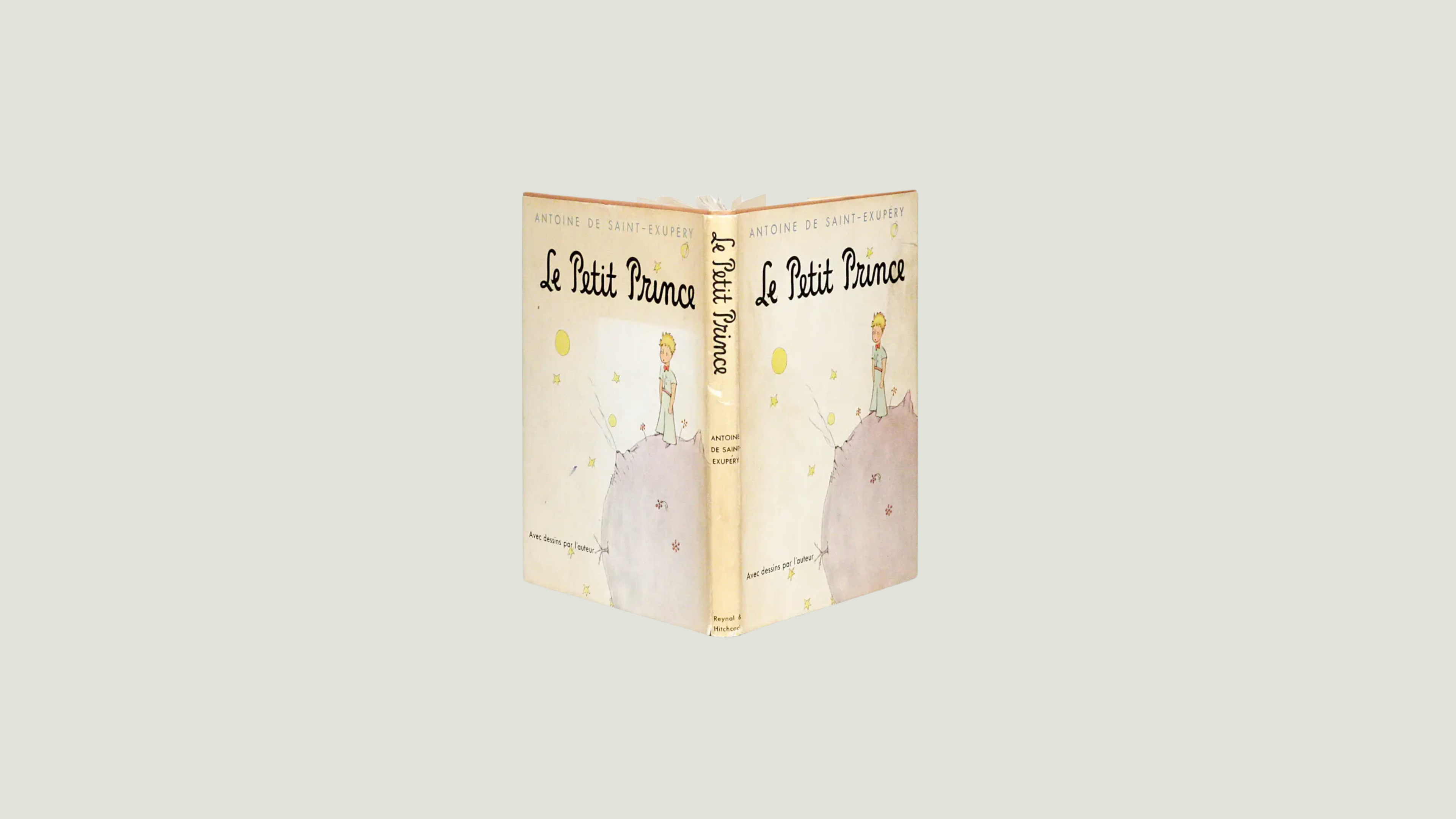
PREMIER CHAPITRE
Lorsque j’avais six ans j’ai vu, une fois, une magnifique image, dans un livre sur la Forêt Vierge qui s’appelait « Histoires Vécues ». Ça représentait un serpent boa qui avalait un fauve. Voilà la copie du dessin.
On disait dans le livre : « Les serpents boas avalent leur proie tout entière, sans la mâcher. Ensuite ils ne peuvent plus bouger et ils dorment pendant les six mois de leur digestion. »
J’ai alors beaucoup réfléchi sur les aventures de la jungle et, à mon tour, j’ai réussi, avec un crayon de couleur, à tracer mon premier dessin. Mon dessin numéro 1.
j’avais — I had (“jshah-VEH”)
six — six (“seese”)
ans — years (“on(g)”)
fois — time(s) (“fwah”)
dans — in (“don(g)”)
sur — on / about (“seughr”)
forêt — forest (“foh-REH”)
s’appelait — was called (“sah-peugh-LEH”)
histoires — stories (“iss-TWAHR”)
vécues — real-life (“vay-KOO”)
représentait — represented (“reugh-preh-zon(g)-TEH”)
serpent — snake (“sair-PON(g)”)
avalait — was swallowing (“ah-vah-LEH”)
dessin — drawing (“deh-SAN(g)”)
on — one (“on(g)”)
disait — said (“dee-ZEH”)
les — the (“leh”)
serpents — snakes (“sair-PON(g)”)
boas — boas (“boh-AH”)
avalent — swallow (“ah-VAL”)
leur— their (“leughr”)
tout — everything (“too”)
sans — without (“son(g)”)
mâcher — chew (“mah-SHAY”)
ils — they (“eel”)
peuvent — can (“peughv”)
ne … plus — no longer (“neugh … ploo”)
bouger — move (“boo-JSHAY”)
et — and (“ay”)
dorment — sleep (“doorm”)
pendant — during (“pon(g)-DON(g)”)
mois — month(s) (“mwah”)
digestion — digestion (“dee-jshess-tee-ON(g)”)
alors — so / then (“ah-LOOR”)
beaucoup — a lot (“bow-koo”)
aventures — adventures (“ah-von(g)-TEUGHR”)
mon — my (“mon(g)”)
tour — turn (“tor”)
avec — with (“ah-VEK”)
un — a (an(g))
crayon — pencil (“krah-YON(g)”)
couleur — colour (“koo-LEUGHR”)
tracer — trace (“trah-SAY”)
premier — first (“preugh-mee-AY”)
Get three courses in one bundle, and save money
-

Courses 1, 2 & 3
Get this bundle -

Courses 4, 5 & 6
Get this bundle -

Courses 7, 8 & 9
Get this bundle
Course 2, Building Structures and grammar courses
-
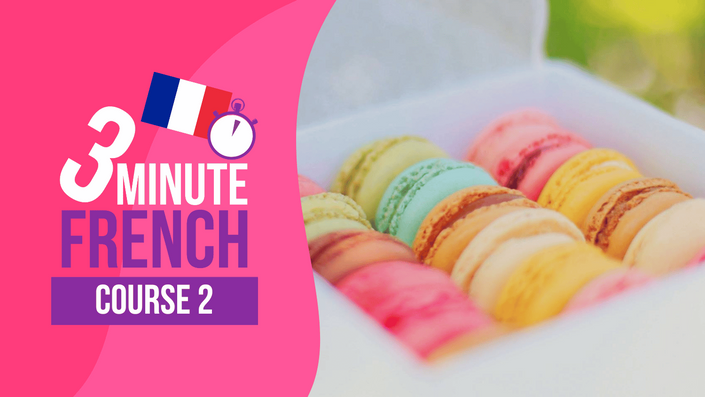
Course 2
Get this course -
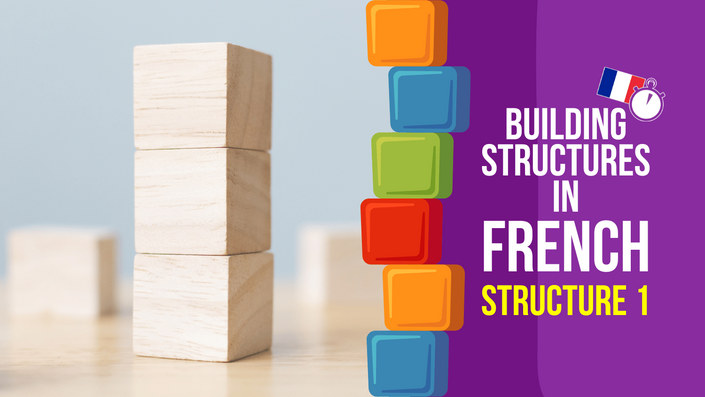
Building Structures
Get this course -
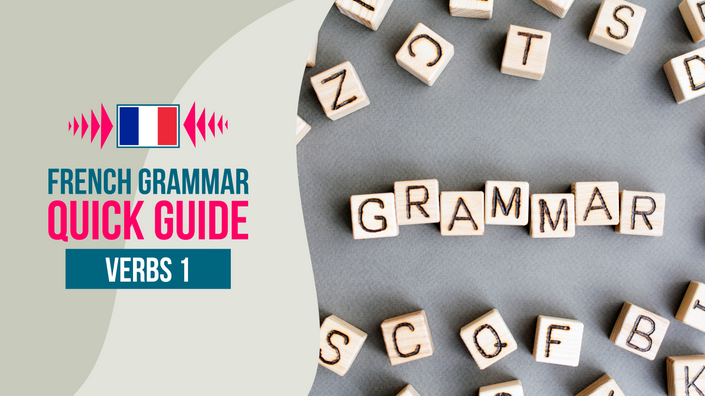
Quick Guide
Get this course
All my French courses
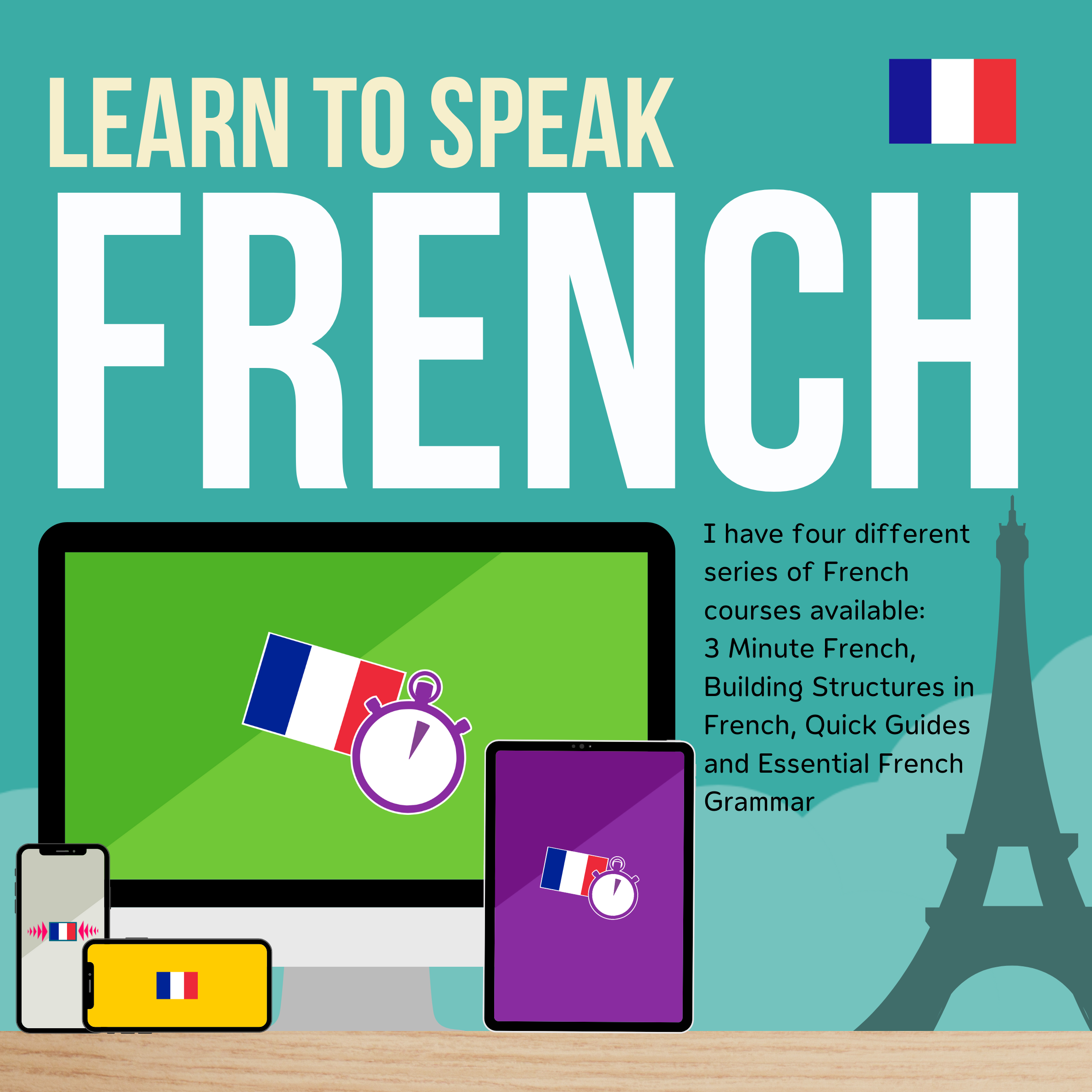
Building Structures in French
Quick Guides
French grammar
Essential French grammar - Future | Conditional | Imperfect
All my Spanish courses
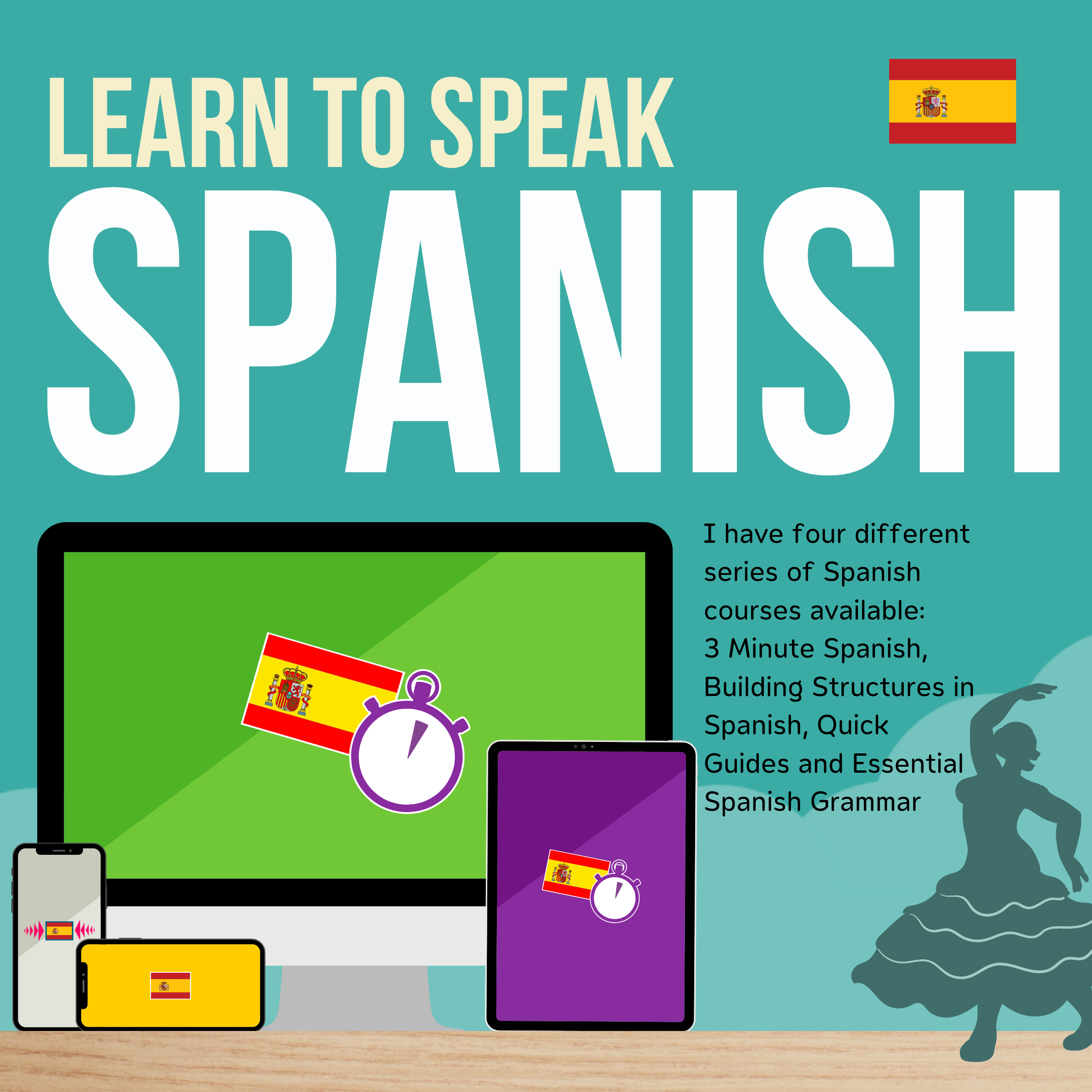
Building Structures in Spanish
Quick Guides
Spanish grammar
Essential French grammar - Future | Conditional | Imperfect
All my German courses

Building Structures in German
Quick Guides
German grammar
Essential French grammar - Future | Conditional | Imperfect
All my Italian courses

Building Structures in Italian
Quick Guides
Italian grammar
Essential French grammar - Future | Conditional | Imperfect
All my Portuguese courses

Building Structures in Portuguese
Quick Guides
Portuguese grammar
Essential French grammar - Future | Conditional | Imperfect
